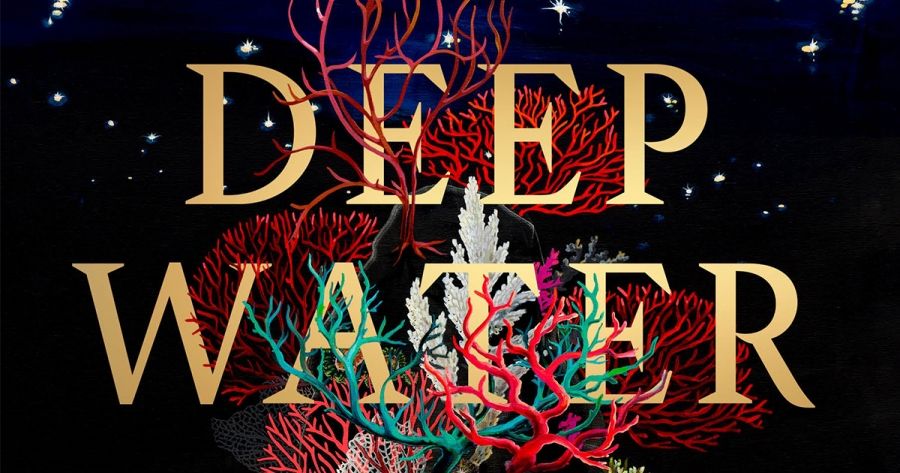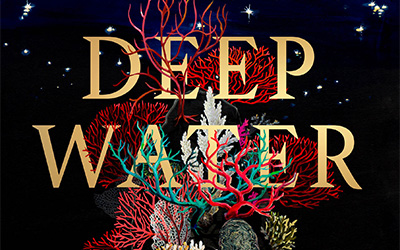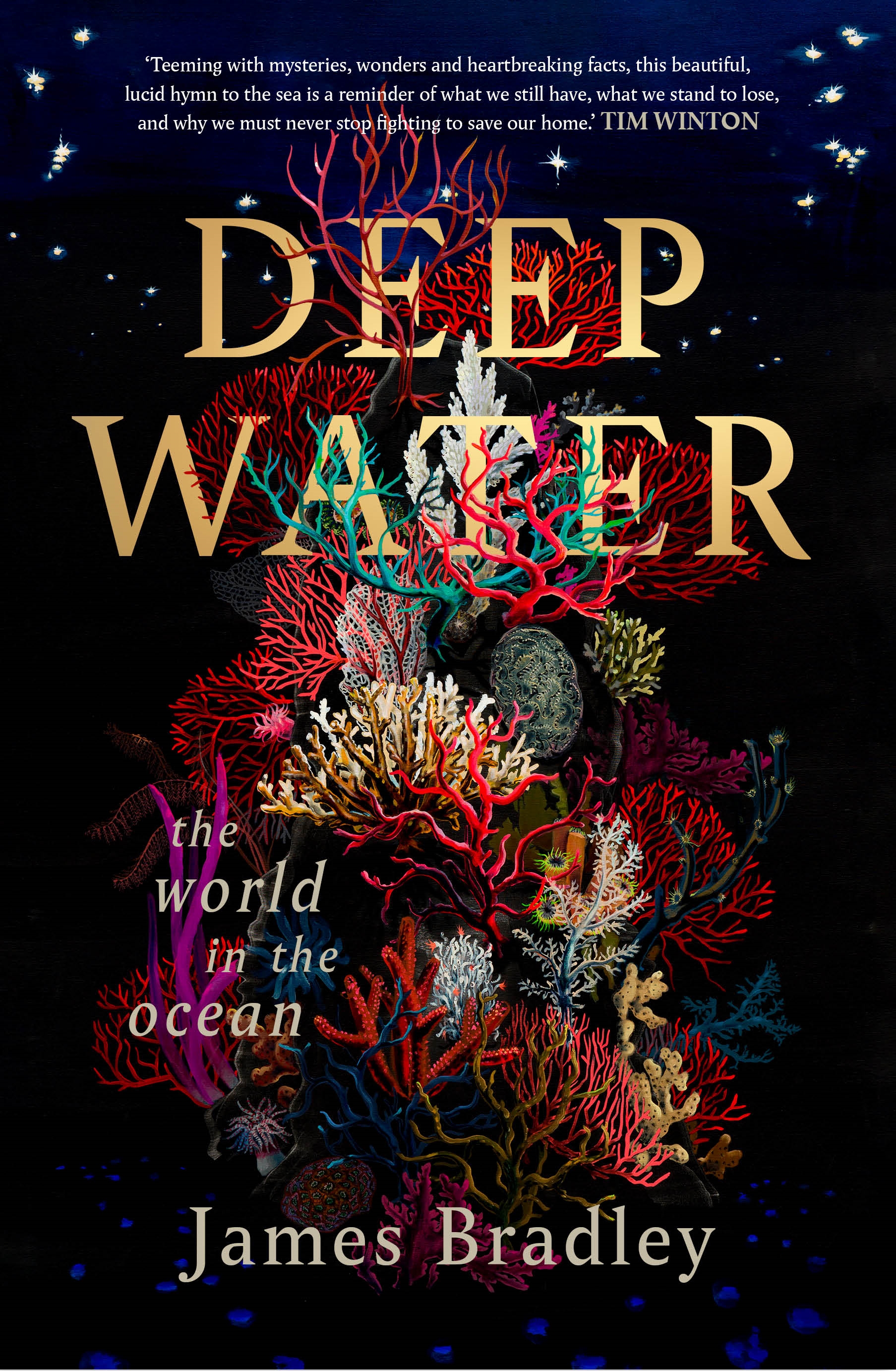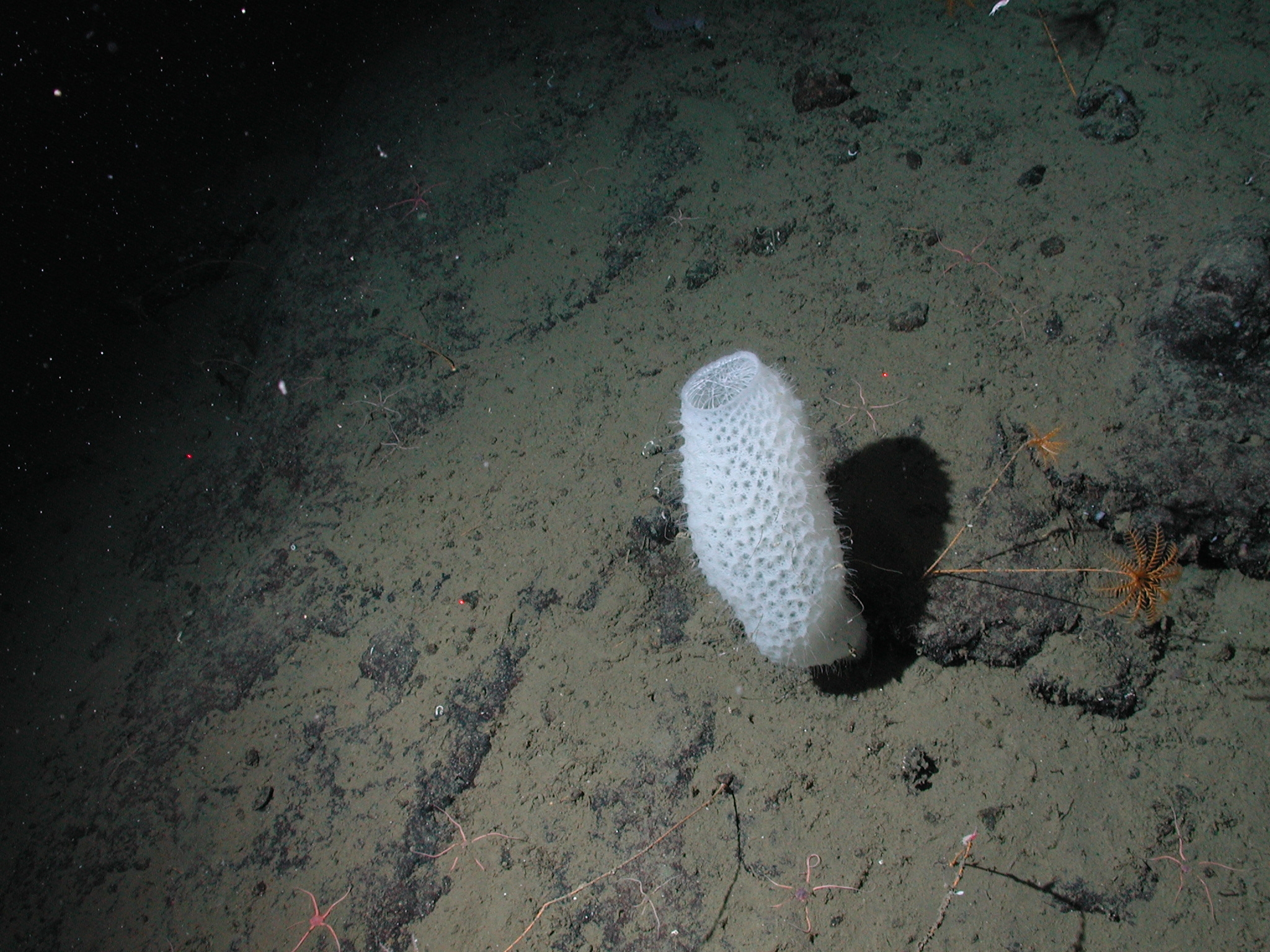
- Free Article: No
- Contents Category: Environment
- Review Article: Yes
- Article Title: ‘A babel of eerie sounds’
- Article Subtitle: An elegiac mood in tension with hope
- Online Only: No
- Custom Highlight Text:
On the surface, this encyclopedic work offers a gloriously lyrical exploration of the sea. It could be part of a recent shoal of books about the more-than-human world, limning the wondrous and astonishing. In Deep Water: The world in the ocean, whales learn rhyme-like patterns to remember their songs, a ‘babel of strange, eerie sounds: skittering blips, long cries, whoops and basso moans’. A loggerhead turtle travels more than 37,000 kilometres to return to her birthplace. Sharks’ chemo-receptors prove acute enough to detect blood ‘in amounts as low as one part in a million’. Port Jackson sharks socialise with their peers, and evidence emerges that some fish species use tools.
- Featured Image (400px * 250px):

- Alt Tag (Featured Image): Felicity Plunkett reviews ‘Deep Water: The world in the ocean’ by James Bradley
- Book 1 Title: Deep Water
- Book 1 Subtitle: The world in the ocean
- Book 1 Biblio: Hamish Hamilton, $36.99 pb, 464 pp
- Book 1 Cover Small (400 x 600):

- Book 1 Cover (800 x 1200):

Bradley brings a poet’s ear and eye to expressing the boundlessness that can be found in water. James Nestor, free diver and science writer, considers diving – transforming the human body into ‘a vessel to explore the wonders of Earth’s inner space’ – a ‘spiritual practice’. Bradley’s magisterial study takes in the light – the bioluminescence one researcher describes as like a ‘waterfall of light’ – to the dark, where, beyond the boundary of the abyssal, 4,000 metres below the sea’s surface, the hadal zone, ‘the unseen’ or ‘the abode of the dead’, opens into giant dark-filled canyons.
The deep ocean is not, as humans tend to think, ‘a shadowy non-place populated by alien creatures and the effusions of nightmares’, but home to active populations of multiple species, including some of the most delicate animals on the planet. There, for example, as scientist Alan Jamieson tells Bradley, a fragile glass sponge clings to a rock face ‘torn apart by seismic energies you can’t even fathom’.
Like the ‘strange liminality of shells’, humanity exists between land and sea. Bradley’s anecdotes about how the solace and tonic of being in the sea enables ‘returning to something intuitive’, suggest the ways this connection can make us more porous, more conscious of the small part we play in an interconnected universe.
To imagine the ocean simply as a source – of wonder, fish, or whale song – is to approach the world with an acquisitive eye and hand. Deep Water begins its challenge to that attitude with a memory. Bradley stands with his family on a beach on Jerrinja Wandi Wandian Country south of Sydney in early 2020 as the catastrophic Black Summer fires rage. His mother, after years of chemotherapy and surgeries, is in constant pain and has been told she will soon die. Together, watching ‘diaphanous skeins of illumination’ dancing in the water, ‘detonating soundlessly in the darkness like lightning moving beneath the surface’, mother and son contemplate the ‘ominous undertone’ evident in the body’s fragility and the ‘uncanny beauty’ around them.
We need to listen better, Bradley suggests, for that undertone – of suppressed histories of violence and greed that have produced the Anthropocene – and to silenced voices, including non-human ones. Bioluminescence, once rare in southern Australia, is now common, caused as it is by rising water temperatures. In the several years between that beach moment before his mother’s death and the arrival of the Covid-19 pandemic, and the completion of this book, Bradley is even more conscious of disaster’s proximity.
This elegiac mood is held in tension with hope. The book calls for collective, respectful ways of living and argues that the sea offers ways to refashion the relationship between the human and the planetary. For Bradley, the ecological emergency cannot be separated from questions of power and history. Yet, standing on the night beach surrounded by fires, beauty lies not only in the water’s glow, but in ‘the lines of care’ connecting his family.
Deep Water advocates for a radical expansion of these lines of care, for justice, peace, and survival. This requires reckoning with ‘the violence upon which the world we inhabit was built’ and continuing harm, and how each of us contributes to that. The sea has been made central to a history of colonial violence, enslavement, greed, and brutality, dividing rich and poor. People compelled to seek refuge by sea are repelled. Bradley emphasises the ‘toxic racist fantasies’ shoring up this refusal. He cites Naomi Klein’s formulation that ‘bombs follow oil … drones follow drought’ and boats follow each, carrying refugees.
Ecological crisis and the human division fuelling it is ‘so immense, so complex and so seemingly intractable that it sometimes seems impossible to make sense of’. The ocean, though, provides a way to think through this. Humanity is ‘one tiny part of an immense living system’, but urban human lives foster separation. Deep Water’s catalogue of awe invites connection with the more-than-human.
Bradley’s work began with Paper Nautilus (1994), an intimate poetry collection about sea, self, and other. Pressing an ear to his lover’s belly, the speaker finds ‘a cathedral / full of water’. Sliding into a night swim’s ‘dark water’, he sinks, listening for history in the sea’s ‘clucks and / growls’.
Flashes of science and history light the poems – crocodiles’ hearts adapt to allow them to remain underwater for hours, while urban dogs study the ‘secret lives of lamp posts’. A note far longer than the lean poem it prefaces packs in information about Johannes Kepler and his application of mathematical principles to astronomy. This note prefigures the methodology of Deep Water and its generous, connection-seeking, allusive style. Bradley’s lines sway as image slips to image, a poetics embodying the erotic and oceanic, mapping the moment love disturbs time and the boundaries of self.
Bradley’s acclaimed novel Wrack (1997), the first of seven, followed Paper Nautilus. There, shipwreck, mapping, and memory are woven in a bricolage reminiscent of the work of Michael Ondaatje, one of the writers from whom Bradley draws epigraphs. This thinking-with-others is a hallmark of Bradley’s work, including as an anthologist. He edited The Penguin Book of the Ocean (2010), an expansive work showing Bradley’s wide reading and critical skills (he won the prestigious Pascall Prize for criticism in 2012).
 A glass sponge, Euplectella aspergillum at 2,572 metres water depth, California, Davidson Seamount, 2002 (NOAA/Monterey Bay Aquarium Research Institute via Wikimedia Commons)
A glass sponge, Euplectella aspergillum at 2,572 metres water depth, California, Davidson Seamount, 2002 (NOAA/Monterey Bay Aquarium Research Institute via Wikimedia Commons)
Deep Water centres on awe, but remains urgently purposeful. Recently, there has been interest in awe as a way to happiness, evinced in psychologist Dacher Keltner’s work. Keltner argues for a more ‘reverential treatment of nature’, but the focus of his book on awe, as its subtitle suggests, is on the human: ‘how [everyday wonder] can transform your life’. At this stage, humanity needs to understand its connectedness. How can we transform others’ lives? In what ways do we contribute to harm?
Bradley’s last chapter ‘Horizon’ considers the cognitive dissonance that makes some ‘simply turn away’ from disaster’s proximity. He knows ‘the forces opposing change are extraordinarily powerful’, and cites the expansion of ‘fascism and its bedfellows, racism and white supremacy’, along with acquisitiveness.
To deny this does ‘violence to ourselves, by cauterising our capacity for empathy and grief.’ Yet Deep Water is about hope, such as may be drawn from AI’s clearing of ocean plastics and the swift adoption of green technologies. Mourning is necessary, but isn’t enough. Bradley’s prodigious research and activism insist that, however much is lost, we must focus on what can be saved. This bracing, vibrant work invites readers’ compassion, humility and reflection as we choose our actions in this ‘heaving, injured world’.


Comments powered by CComment